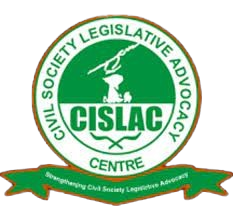Health
Stakeholders in Bauchi Call for Stronger Tobacco Control, Taxation to Safeguard Public Health

Stakeholders in Bauchi Call for Stronger Tobacco Control, Taxation to Safeguard Public Health
From Paul Orude, Bauchi
Stakeholders in Bauchi State have renewed calls for stronger tobacco control measures, particularly through effective tobacco taxation, as part of broader efforts to protect citizens from the harmful effects of smoking and second-hand smoke.
The call was made during a training workshop on the implementation of smoke-free policies, organized by the Civil Society Legislative Advocacy Centre (CISLAC) in Bauchi on Independence Day (October 1st, 2025).
Speaking on best practices, Solomon Adoga, a representative of CISLAC, stressed that tobacco control is a pressing public health issue. He reminded participants that Article 8 of the World Health Organization’s (WHO) Framework Convention on Tobacco Control (FCTC) obligates governments to protect citizens from exposure to tobacco smoke.
> “Several countries have taken bold steps by enforcing smoke-free environments, but Nigeria is still lagging behind. Despite the existence of the National Tobacco Control Act (2015), which regulates all aspects of tobacco use, including smoke-free places, advertising, promotion, sponsorship, packaging, and labeling, we are failing as a country in terms of enforcement,” Adoga lamented.
He added that while the law provides for the creation of a National Tobacco Control Committee and other frameworks, weak enforcement means that millions of Nigerians continue to suffer the consequences of direct and second-hand smoking.
Participants at the workshop—which drew representatives from civil society organizations, non-governmental organizations, and the media—expressed concern over the rising health and social burden of tobacco use. They noted that tobacco consumption is not just harmful to smokers, but also endangers the health of non-smokers exposed to smoke in public places, homes, and workplaces.
The stakeholders therefore called on the Bauchi State Government to domesticate the national law by developing state-specific policies and legislative frameworks to regulate tobacco use. They also emphasized the need for inter-agency collaboration to ensure that smoke-free laws are effectively implemented.
In addition, CISLAC highlighted the potential of tobacco taxation not only as a tool to discourage smoking but also as a sustainable revenue source for government at a time when health financing is on the decline.
> “Tobacco taxation is a win-win approach. It will discourage consumption, protect public health, and at the same time generate revenue that can be channeled into healthcare financing and other critical social services,” Adoga said.
The workshop provided a platform for dialogue on the dangers of tobacco use, the gaps in enforcement, and the need for urgent government action. Stakeholders agreed that without stronger policies and political will, Nigeria risks losing more lives and resources to the devastating impact of tobacco.
-
News2 days ago
Bauchi NAWOJ Wins National Award as Best Performing Chapter, Presents Honour to SA Media
-
News4 days ago
JUST IN: Renowned Islamic Scholar Sheikh Dahiru Usman Bauchi Dies at 102
-
News6 days ago
RAAMP: Bauchi, FG and Partners Flag Off Construction of 318 km Roads
-
News4 days ago
Bauchi Governor Mourns Renowned Islamic Scholar Sheikh Dahiru Usman Bauchi
-
News2 days ago
Over 2 Million People Across the World Grace Interment of Sheikh Dahiru Bauchi
-
Education3 days ago
We Are Setting the Pace for the Future — FUHSA VC
-
News7 days ago
Gov Mohammed Mourns Abu Ali, Former Military Administrator of Bauchi State
-
News7 days ago
Bauchi Shuts All Schools Over Heightened Security Threats